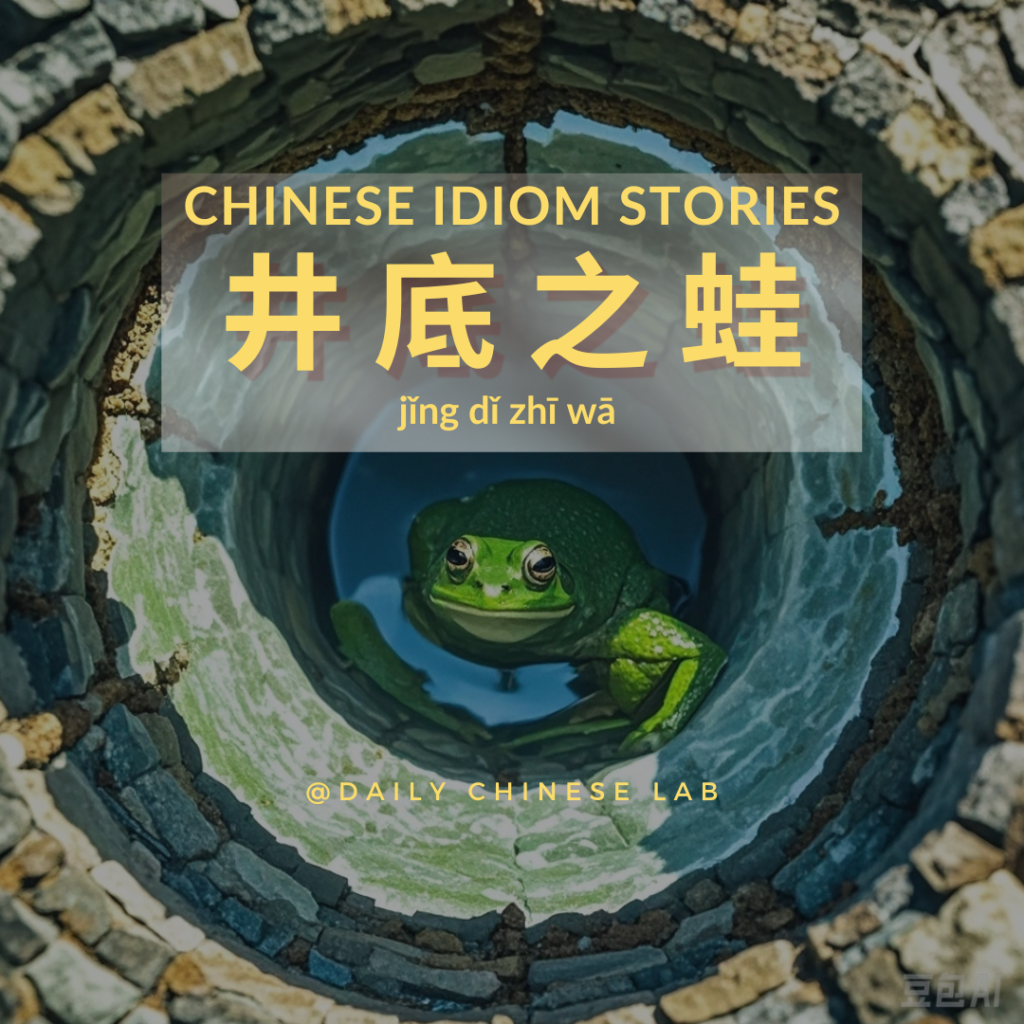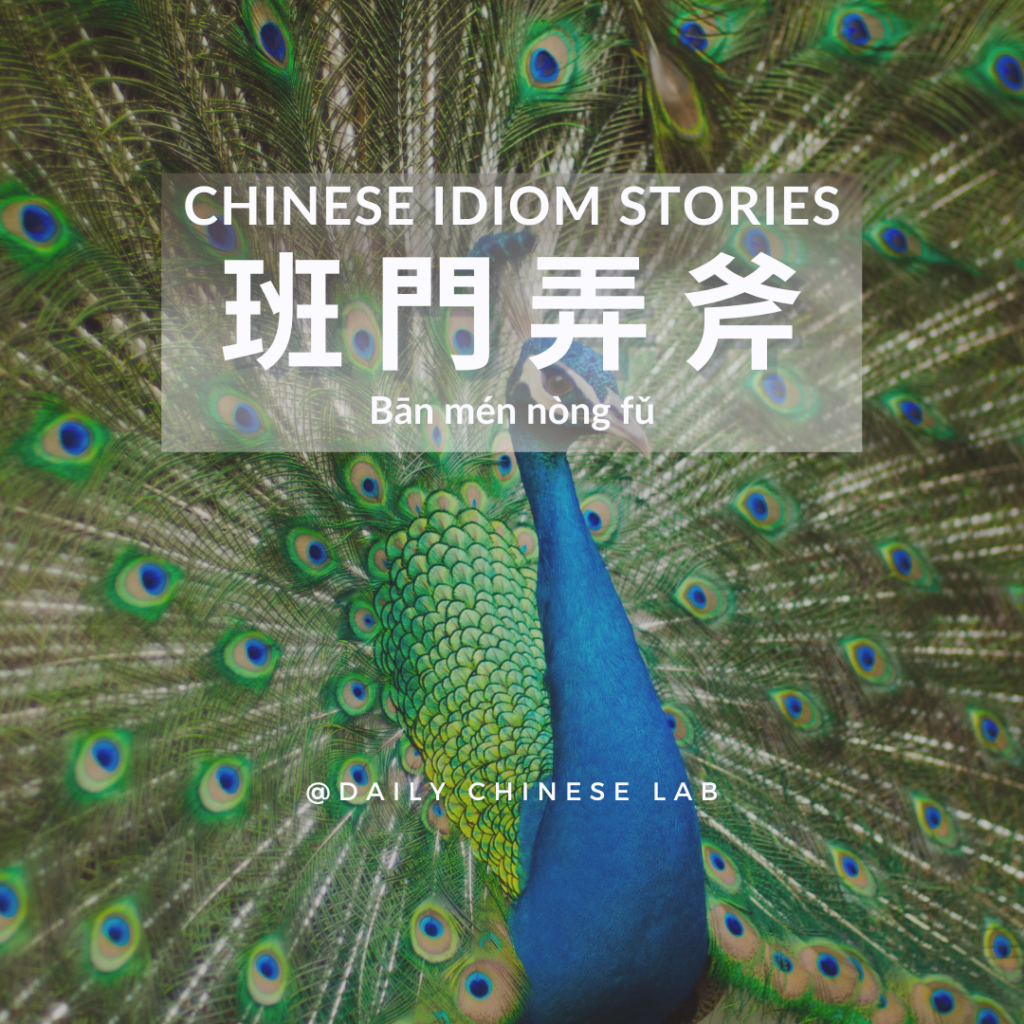Idiom: 井底之蛙 (jǐng dǐ zhī wā)
Literal Meaning: “A frog at the bottom of the well.”
Explanation: This idiom describes someone with a limited perspective, unaware of the larger world around them due to their narrow viewpoint.
Chinese Idiom Stories
The story “Like a Frog at the Bottom of a Well” has an intriguing historical background. During the Warring States period, two notable men—Gongsun Long, a skilled debater, and Wei Mou, a prince from Zhongshan devoted to Zhuangzi’s teachings—were once good friends.
One day, Gongsun Long asked Wei Mou for advice about a problem that troubled him. Instead of being direct, he said, “I’ve studied the ancient sages and am now highly learned. I can argue so well that I often leave others speechless, even confuse intelligent people. Yet, when I hear Zhuangzi’s teachings, I feel lost. Why is that?”
Wei Mou sighed, then laughed and asked, “Have you heard the story of the frog in the well?” He told the tale of a frog living in an old well who proudly boasted to a giant turtle from the Eastern Sea: “I’m the happiest creature! I can jump around, rest on the ledge, and swim in the water. I am the lord of this well. You should see it for yourself!”
Today, “井底之蛙” is used to describe someone who is unaware of the broader world, with a narrow viewpoint.
Idiom Example Sentences
- 不要做井底之蛙,多出去走走看看吧!
- Bùyào zuò jǐng dǐ zhī wā, duō chūqù zǒuzǒu kànkan ba!
- Don’t be so narrow-minded, go out and see the world!
- 他的一番話,顯然是井底之蛙的見解。
- Tā de yī fān huà, xiǎn rán shì jǐng dǐ zhī wā de jiànjiě.
- His remarks clearly show a very limited perspective.
Practice Exercise
1. Short Answer:
What does the idiom “井底之蛙” imply about someone’s knowledge or perspective?
2. Sentence Creation:
Write your own sentence using “井底之蛙” to describe someone with a narrow viewpoint.

Multiple Choice Questions
1. What does “井底之蛙” describe?
A. A person with broad knowledge
B. A person with a limited perspective
C. An adventurous traveler
D. A wise elder
(Answer: B)
2. When would you use “井底之蛙”?
A. To describe someone who has traveled the world
B. To describe someone who is narrow-minded and unaware of the bigger picture
C. To describe a curious person
D. To describe someone who loves nature
(Answer: B)








